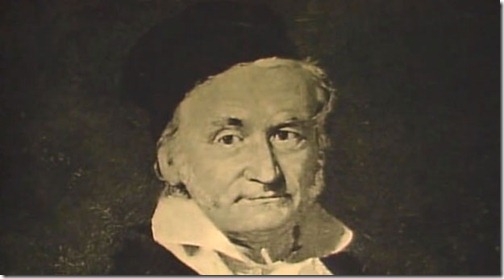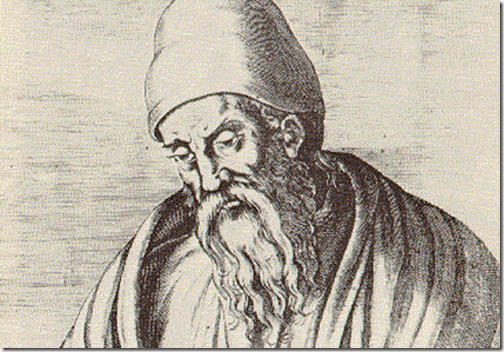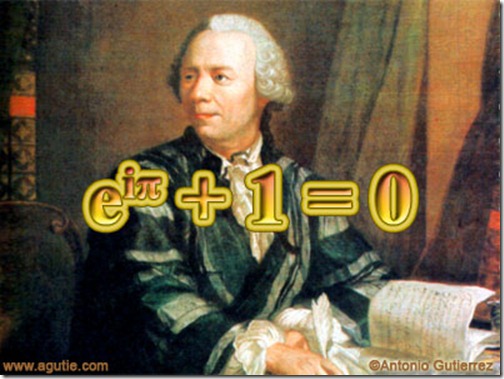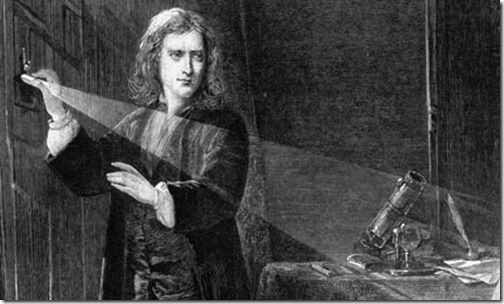I know and completely understand that this is not a favorite subject to most of you people out there. Got to be honest here and tell you that my favorite subjects were Mathematics and Physics without a doubt. This particular list talks about ten of the most notable and important mathematicians in the history of human existence. It is because of these people (on a grander scale) that math is the subject we know it to be. You must be familiar with some of the names mentioned below, but others will be completely new. I hope you enjoy the list.
10. PYTHAGORAS OF SAMOS

This guy lived around 570 to 495 BC in Greece and he is known to be the founder of the Pythagorean group. That group was known to be one of the first to study advance mathematics. I am pretty sure that you guys are familiar with the Pythagoras Theorem, the one used in trigonometry. Well, this guy came up with that rule. There are theories that state that it was not him that came up with that equation. Considering of course that he did, it was remarkable contribution to the world of mathematics. That’s what opened the door to the study of geometry.
9. HENRI POINCARE

Jules Henri Poincare lived from 1854 to 1912. He was a famous mathematician to come from France. He made many contributions to pure and applied mathematics, mathematical physics and celestial mechanics. He was the one who came up with the Poincare conjecture. He was the first person to present the Lorentz transformations in their modern form. I am sure you guys have heard about the Poincare group that is used in Physics and Mathematics. That group is named after this guy.
8. LEONARDO PISANO BIGOLLO

He is also known as Leonardo Fibonacci and lived from 1170 to 1250. He is known to be one of the greatest mathematicians of the Middle Age. He came up with the Fibonacci Series and he contributed a lot to the Arabic numbering system. He came back to Italy from the Arabic world in 1202 and came up with Liber Abaci where he tried to introduce the Arabic numbers in many situations because he considered them to be easier and much less complex than the roman numerals. He is considered to be great asset in the development of modern mathematics.
7. BERNHARD RIEMANN

This particular mathematician comes from Germany and lived from 17th September 1826 to 20th July 1866. His full name is Georg Friedrich Bernhard Reimann and he made various contributions to analysis, number theory and differential geometry. Some of his contributions led to the development of general relativity later. He died in Italy.
6. GIROLAMO CARDANO

He was born on the 24th September in 1501 in Pavia. At the age of 74 he died in Rome on the 21st September in 1576. He was an Italian mathematician, astrologer and gambler. His published works on medicine, mathematics, physics, philosophy, religion and music are over 200. Interestingly, it was gambling that led him to come up with basic rules in probability and that made him one of the founders of the concept. He is mostly noted for his contributions to algebra (something all of you hate; I know it).
5. CARL FRIEDRICH GAUSS

He is known as the ‘Prince of Mathematics’. He wrote the Disquistiones Arithmeticae while he was still twenty one year sold. While he was still attending primary school he was able to add all the numbers from 1 to 100 without any prior preparation within seconds. He contributed greatly to the number theory especially prime numbers. He was the one to introduce the Gaussian gravitational constant in Physics and he achieved all this before he turned twenty four. He was a prodigy. He died when he was 77 and till the end of his life he continued making contributions to the world of math.
4. EUCLID

Euclid is considered to be the father of Geometry. He lived around 300 BC. Not a lot is known about his life. He came up with many different theorems that gave birth to several other theorems that we use in modern day mathematics. He was a big influence in the development of mathematics. Elements was published by him which was in use for education purposes up till the twentieth century. It is reported that there were five other different works by him but they have sadly been lost. Those works are said to be on geometry.
3. ARCHIMEDES

He was a Greek mathematician, physicist, engineer and inventor. He lived from 287 BC to 212 BC. Not a lot is known about his life through he is regarded as one of the leading scientists. He laid down the foundations of hydrostatics and statics. He also came up with the explanation to the principle of lever. He is mostly known for Archimedes’ principle, Archimedes’ Screw, hydrostatics, lever and infinitesimals.
2. LEONHARD EULER

Leonhard is considered to be the King of Mathematics. He lived from 1707 to 1783. He was considered to be just as intelligent as Einstein himself. He was the one to introduced the concept of function and the way it is written; f(x). I am sure you are familiar with the Euler constant? Needless to say, it was his contribution. He also came up with many different symbols that we still use in mathematics for example he came up with the symbol to pi. He is also known to have disproved many different mathematical theories of his time coming up with his own.
1. ISAAC NEWTON

This guy is known to have developed the modern day calculus as we know it and you know how crucial it has been and how useful it is. Issac Newton has been noted as a genius because of something known as ‘Principia’. This is a three-book work by Issac Newton which was originally published in the year 1687. These books are where he stated the three laws of motion which formed the base for mechanics. The books also contain his notes on the law of universal gravitation and a derivation of Kepler’s laws of planetary motion.